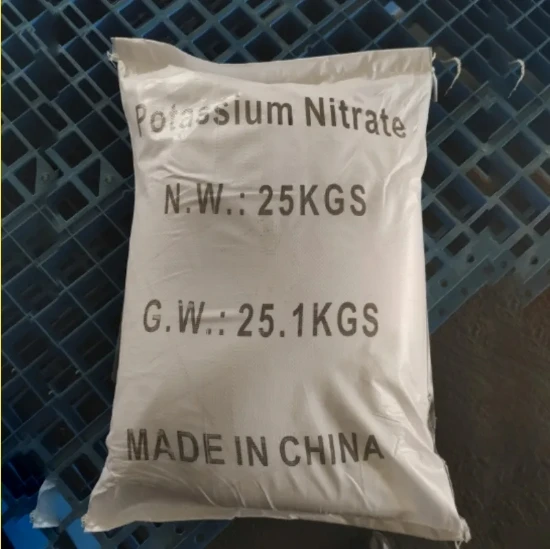
e301 food additive
Understanding E301 An Essential Food Additive
In the vast world of food additives, E301 stands out as an important compound known as sodium ascorbate. Primarily used for its antioxidant properties, this additive plays a crucial role in food preservation, maintaining the freshness and nutritional value of various products. Understanding E301 encompasses its sources, functions, benefits, and considerations for consumers.
What is E301?
E301 is the food additive code assigned to sodium ascorbate, a sodium salt of ascorbic acid, commonly known as Vitamin C. It is a white, crystalline powder that is soluble in water and possesses similar vitamin C properties. As an additive, E301 serves multiple purposes in the food industry, making it an essential component in many processed foods.
Sources and Production
Sodium ascorbate is derived from ascorbic acid through a simple substitution process where sodium ions replace hydrogen ions. While ascorbic acid can be sourced from various fruits and vegetables, including citrus fruits and green leafy vegetables, sodium ascorbate is typically synthesized in industrial settings for food production. This makes E301 widely available and cost-effective as a food additive.
Functions in Food
One of the primary functions of E301 is its role as an antioxidant. It helps to prevent the oxidation of food, which can lead to spoilage, rancidity, and the loss of flavor and nutritional value. By inhibiting the action of free radicals and reactive oxygen species, sodium ascorbate helps preserve the quality of food products, extending their shelf life and maintaining their appeal to consumers.
In addition to its antioxidant properties, E301 is often used as a curing agent in processed meats and sausages. It helps to stabilize color and improve the overall aesthetic quality of these products. Furthermore, sodium ascorbate is known to enhance the absorption of iron from non-meat sources, which can be beneficial in combating iron deficiency, particularly in vegetarian or vegan diets.
e301 food additive

Benefits to Consumers
From a nutritional standpoint, E301 offers several benefits. Foods that contain sodium ascorbate can contribute to the daily intake of Vitamin C, essential for various bodily functions, including immune support and collagen synthesis. Furthermore, because it aids in preserving food, it can help minimize food waste, an important factor in today's sustainability efforts.
Safety and Regulations
The use of E301 is regulated by food safety authorities in numerous countries. According to the European Food Safety Authority (EFSA) and the U.S. Food and Drug Administration (FDA), sodium ascorbate is considered safe for consumption within established limits. However, as with any additive, it's vital for consumers to be aware of their overall dietary intake, particularly for those with specific food sensitivities or allergies.
Considerations for Consumers
While sodium ascorbate is generally recognized as safe, some individuals may prefer to minimize their intake of food additives. For those who choose to embrace a more natural diet, fresh and minimally processed foods are always the best options. Consumers are encouraged to read food labels carefully and make informed choices based on their dietary preferences and health needs.
Additionally, it's essential to recognize that while E301 can enhance food preservation, it should not be viewed as a substitute for a balanced and varied diet. Whole food sources of Vitamin C, such as fruits and vegetables, provide a broader spectrum of nutrients that contribute to overall health.
Conclusion
E301, or sodium ascorbate, is a vital food additive that plays significant roles in food preservation, color stabilization, and nutritional enhancement. Its antioxidant properties help maintain food quality while offering consumers a source of Vitamin C. As with any food additive, being aware of its benefits and regulations can help individuals make better-informed dietary choices. Understanding the role of such additives is part of a larger conversation about food quality, safety, and nutrition in the modern diet, ensuring that consumers can enjoy their foods with confidence and health in mind.
-
Why Glacial Acetic Acid Food Grade Is Essential in FlavorNewsMay.26,2025
-
Surging Export Growth of Food Additives in ChinaNewsMay.26,2025
-
How Ammonium Nitrate Fertilizer Boosts Crop YieldsNewsMay.26,2025
-
How 1,2,3-Benzotriazole Shields Plastics from UV DegradationNewsMay.26,2025
-
Cyanide in Gold Mining: Protecting People and the PlanetNewsMay.26,2025
-
Aluminum Hydroxide in Modern Sunscreen FormulationsNewsMay.26,2025
-
Understanding Synthetic Rubber OptionsNewsApr.27,2025
Hebei Tenger Chemical Technology Co., Ltd. focuses on the chemical industry and is committed to the export service of chemical raw materials.
-

view more DiethanolisopropanolamineIn the ever-growing field of chemical solutions, diethanolisopropanolamine (DEIPA) stands out as a versatile and important compound. Due to its unique chemical structure and properties, DEIPA is of interest to various industries including construction, personal care, and agriculture. -

view more TriisopropanolamineTriisopropanolamine (TIPA) alkanol amine substance, is a kind of alcohol amine compound with amino and alcohol hydroxyl, and because of its molecules contains both amino and hydroxyl. -

view more Tetramethyl Thiuram DisulfideTetramethyl thiuram disulfide, also known as TMTD, is a white to light-yellow powder with a distinct sulfur-like odor. It is soluble in organic solvents such as benzene, acetone, and ethyl acetate, making it highly versatile for use in different formulations. TMTD is known for its excellent vulcanization acceleration properties, which makes it a key ingredient in the production of rubber products. Additionally, it acts as an effective fungicide and bactericide, making it valuable in agricultural applications. Its high purity and stability ensure consistent performance, making it a preferred choice for manufacturers across various industries.











